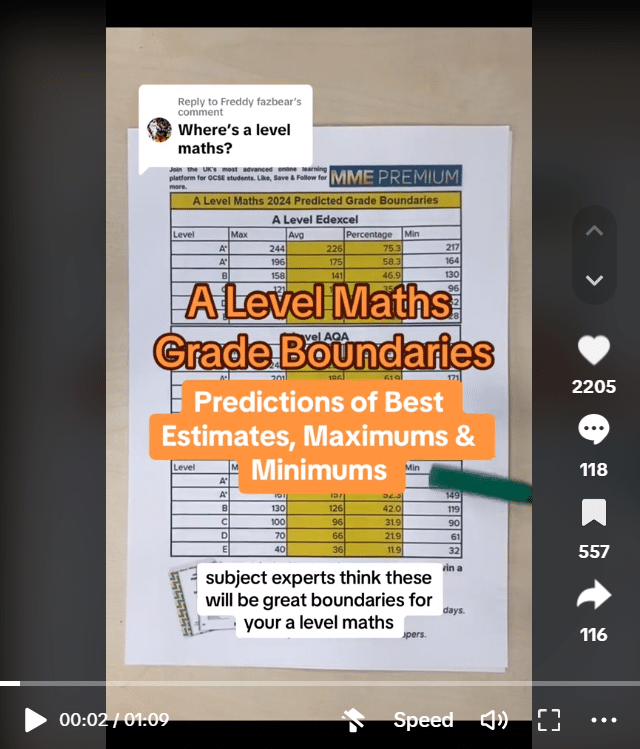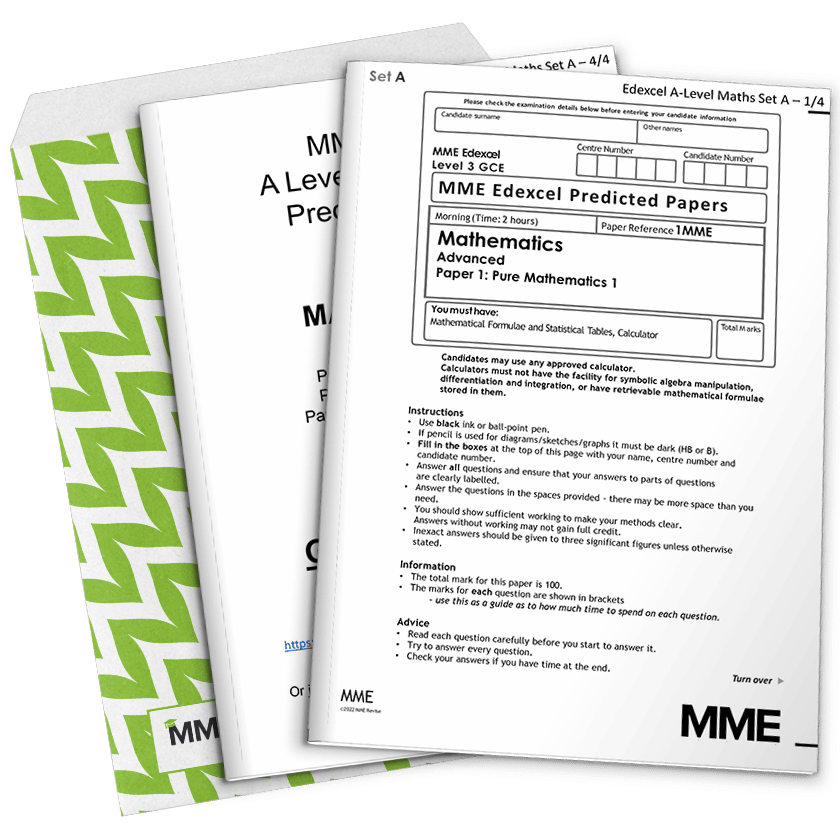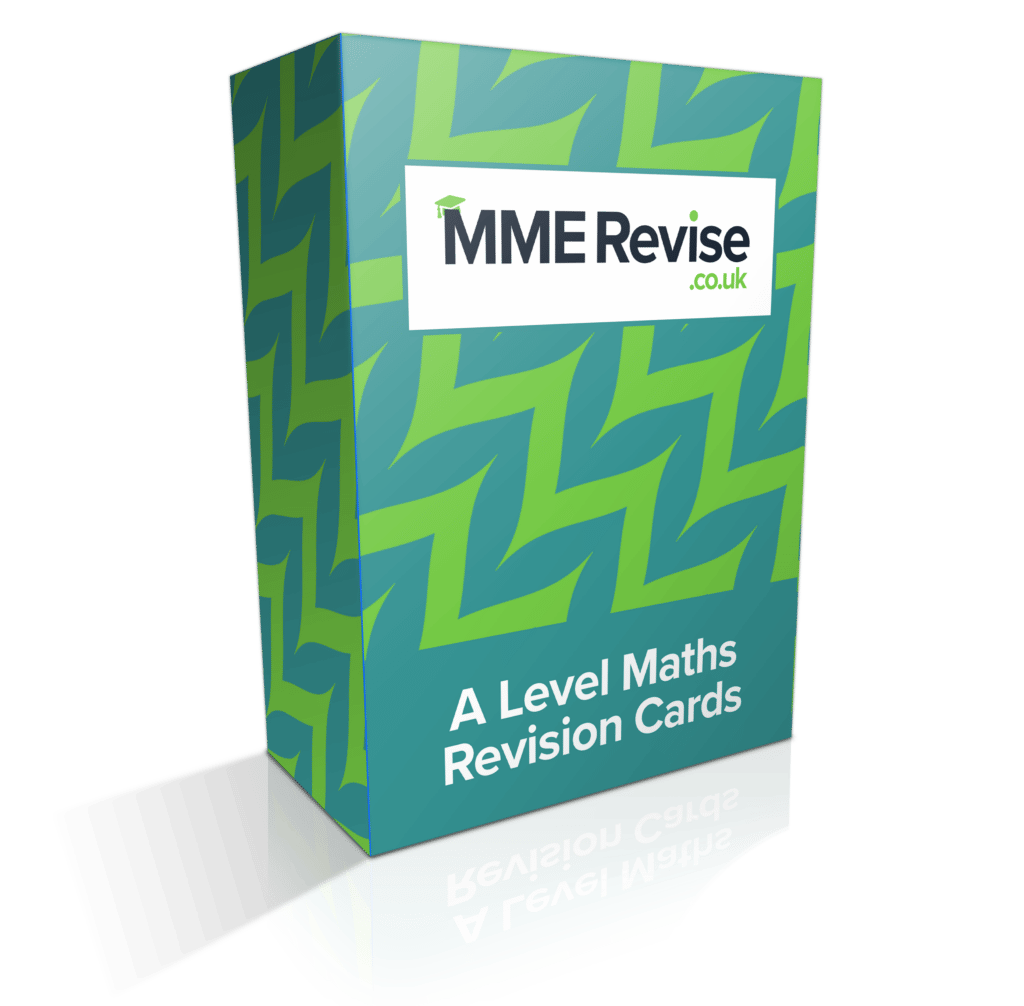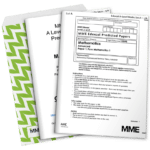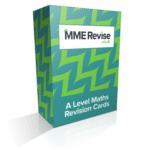Geometric Series
Geometric Series Revision
Geometric Series
A series is a sequence where the goal is to add all the terms together. We will study arithmetic series and geometric series.
Recall: Notation from Sequences:
a is first term.
r is the ratio, the amount we multiply by each time.
n is the number of terms in the series.
As for arithmetic series, we can add together all the terms in a geometric series.
Make sure you are happy with the following topics before continuing.
Adding the Terms
The sum of a geometric series with n terms is:
S_{n}=\dfrac{a(1-r^{n})}{1-r}
We can prove this result:
S_{n}=a+ar+ar^{2}+...+ar^{n-1}
rS_{n}=ar+ar^{2}+ar^{3}+...+ar^{n}
S_{n}-rS_{n}=a-ar^{n}
(1-r)S_{n}=a(1-r^{n})
S_{n}=\dfrac{a(1-r^{n})}{1-r}
Sum to Infinity
If |r|<1 in a geometric progression, then we can sum up an infinite number of terms and still end with a finite answer. This is called the sum to infinity. The sum to infinity is given by:
S_{\infty}=\dfrac{a}{1-r}
Series that have a sum to infinity are convergent.
Series that do not have a sum to infinity are divergent.
Example 1: Sum of a Geometric Series
What is the sum of the first ten terms of the series that begins 1,3,9,27...?
[2 marks]
a=1
r=3
n=10
Substitute into formula:
\begin{aligned}S_{10}&=\dfrac{1(1-3^{10})}{1-3}\\[1.2em]&=\dfrac{1-3^{10}}{-2}\\[1.2em]&=\dfrac{1-59049}{-2}\\[1.2em]&=\dfrac{-59048}{-2}\\[1.2em]&=29524\end{aligned}
Example 2: Sum to Infinity
What is the sum to infinity of the geometric series that begins 1,\dfrac{1}{2},\dfrac{1}{4},\dfrac{1}{8}...?
[2 marks]
a=1r=\dfrac{1}{2}
Substitute into formula:
\begin{aligned}S_{\infty}&=\dfrac{a}{1-r}\\[1.2em]&=\dfrac{1}{1-\dfrac{1}{2}}\\[1.2em]&=\dfrac{1}{\dfrac{1}{2}}\\[1.2em]&=2\end{aligned}
Geometric Series Example Questions
Question 1: A geometric progression has first term 729 and ratio \dfrac{2}{3}. Find:
i) The sum of the first 7 terms.
ii) The sum to infinity.
[4 marks]
i) a=729
r=\dfrac{2}{3}
n=7
Substitute into formula:
\begin{aligned}S_{n}&=\dfrac{a(1-r^{n})}{1-r}\\[1.2em]&=\dfrac{729\left(1-\left(\dfrac{2}{3}\right)^{7}\right)}{1-\dfrac{2}{3}}\\[1.2em]&=\dfrac{729\left(1-\dfrac{128}{2187}\right)}{\dfrac{1}{3}}\\[1.2em]&=3\times 729\left(\dfrac{2059}{2187}\right)\\[1.2em]&=2187\times\dfrac{2059}{2187}\\[1.2em]&=2059\end{aligned}
ii) \begin{aligned}S_{\infty}&=\dfrac{a}{1-r}\\[1.2em]&=\dfrac{729}{1-\dfrac{2}{3}}\\[1.2em]&=\dfrac{729}{\dfrac{1}{3}}\\[1.2em]&=3\times 729\\[1.2em]&=2187\end{aligned}
Question 2: The diameter of a tree grows by a factor of 1.01 each year. It is measured in 2009 and it has a diameter of 0.2m.
i) Is a sum to infinity a sensible question in this scenario?
ii) If a tree of this type is planted every year up to 2030, starting in 2009, what is the sum of all of the diameters?
[4 marks]
i) A sum to infinity is not sensible for two reasons:
The tree will not live forever.
r=1.01 so |r|>1 so there is no finite sum to infinity.
ii) a=0.2
r=1.01
n=22
Substitute into formula:
\begin{aligned}S_{n}&=\dfrac{a(1-r^{n})}{1-r}\\[1.2em]&=\dfrac{0.2(1-1.01^{21})}{1-1.01}\\[1.2em]&=4.65\end{aligned}m
Question 3: The sum to infinity of a series is 390. The first term is 2. Find r.
[2 marks]
S_{\infty}=\dfrac{a}{1-r}
a=2
390=\dfrac{2}{1-r}
1-r=\dfrac{2}{390}
r=1-\dfrac{2}{390}
r=\dfrac{388}{390}
r=\dfrac{194}{195}
Question 4: On one chessboard is placed £1 on the first square, £2 on the second square, £3 on the third square, etc. On another chessboard is placed 1p on the first square, 2p on the second square, 4p on the third square, etc. Which chessboard has more money on it overall?
Hint: A chessboard has 64 squares.
[6 marks]
The first option is an arithmetic series:
a=1
d=1
n=64
Substitute into formula:
\begin{aligned}S_{n}&=\dfrac{n}{2}(2a+(n-1)d)\\[1.2em]&=\dfrac{64}{2}(2\times 1+(64-1)1)\\[1.2em]&=32(2+63)\\[1.2em]&=32\times 65\\[1.2em]&=£2080\end{aligned}
The second option is a geometric series:
a=0.01
r=2
n=64
Substitute into formula:
\begin{aligned}S_{n}&=\dfrac{a(1-r^{n})}{1-r}\\[1.2em]&=\dfrac{0.01(1-2^{64})}{1-2}\\[1.2em]&=£1.84\times 10^{17}\end{aligned}
So the second chessboard is far more valuable.
Geometric Series Worksheet and Example Questions
Sequences and Series
A LevelYou May Also Like...

MME Learning Portal
Online exams, practice questions and revision videos for every GCSE level 9-1 topic! No fees, no trial period, just totally free access to the UK’s best GCSE maths revision platform.

